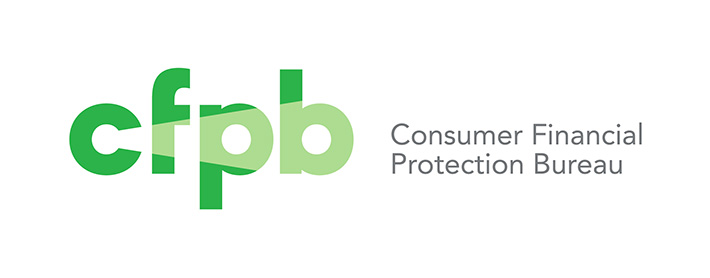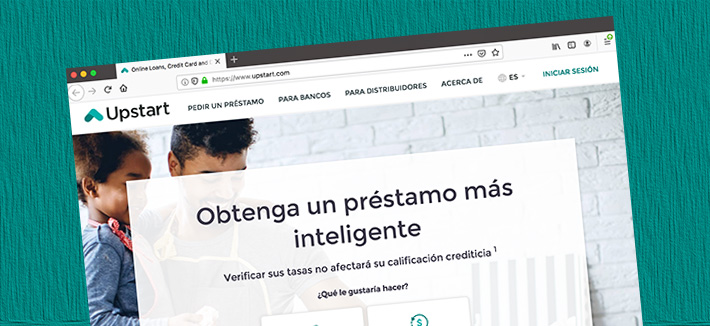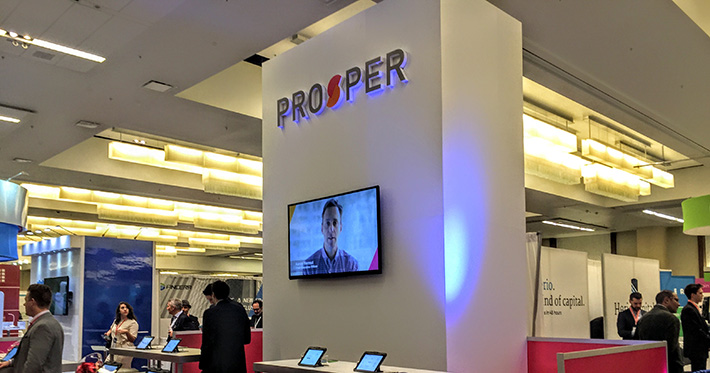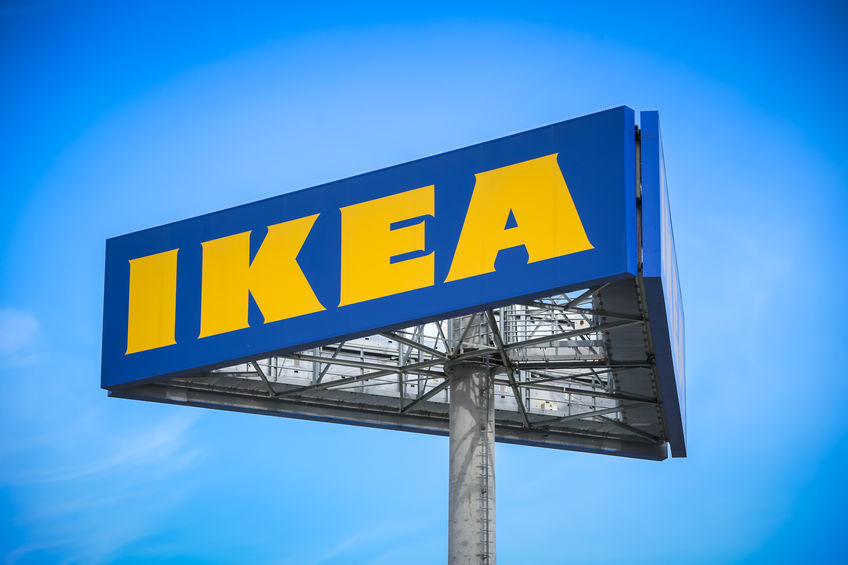Archive for 2021
Funding Circle Gets in to Buy-Now-Pay-Later (In UK)
September 2, 2021 Funding Circle is joining one of the trendiest markets in the industry right now, Buy-Now-Pay-Later (BNPL). The company will provide its customers with a way to spread supplier payments or invoice costs over 90 days by providing the capital upfront and allowing the borrower to pay later.
Funding Circle is joining one of the trendiest markets in the industry right now, Buy-Now-Pay-Later (BNPL). The company will provide its customers with a way to spread supplier payments or invoice costs over 90 days by providing the capital upfront and allowing the borrower to pay later.
It has been dubbed FlexiPay by the UK-based lender and will enable access to between £3,000 – £50,000 of upfront capital. Loan eligibility will be determined in minutes and the funds will be available almost instantaneously, according to Funding Circle. This combination of small business lending with BNPL services is seemingly unprecedented to the industry.
“We are really excited to be using our market-leading technology to launch FlexiPay, which is designed to support small businesses to manage and control their cash flow,” said Lisa Jacobs, the Europe Managing Director of Funding Circle. “The new product enables businesses to buy now and pay later on any business spend in a way that suits them.”
The payment option will give access to “interest-free” financing to borrowers with a flat fee of 3% per invoice, without any annual charges or setup fees. Access to FlexiPay will not be given to new customers until the end of the year.
According to a source familiar with Funding Circle, the company could possibly bring the FlexiPay concept to the US once they’ve fully rolled it out in the UK.
CFPB Publishes Long Awaited Proposed Rule on Small Business Loan Data Collection
September 1, 2021 A 918-page proposed rule published by the Consumer Financial Protection Bureau (if you don’t know what this bureau is, now is a good time to read up), is finally out.
A 918-page proposed rule published by the Consumer Financial Protection Bureau (if you don’t know what this bureau is, now is a good time to read up), is finally out.
Its application is broad, extending to “loans, lines of credit, credit cards, and merchant cash advances,” the CFPB said today. Initially, the Bureau’s intent was to exclude merchant cash advances, but that has apparently changed. (side note: I predicted this could happen as early as 2014.) Meanwhile, “factoring, leases, consumer-designated credit used for business purposes, and credit secured by certain investment properties” are exempt from the rule.
The rule is designed to assess whether there are disparities in sex, race, and ethnicity, when it comes to small businesses being able to access credit.
Covered financing providers would have to request that applicants disclose these things, which applicants can refuse to answer if they so choose. It could get a bit awkward from there because “if an applicant does not provide any ethnicity, race, or sex information for at least one principal owner, the Bureau is proposing that the financial institution must collect at least one principal owner’s race and ethnicity (but not sex) via visual observation and/or surname if the financial institution meets in person with any principal owners (including meeting via electronic media with an enabled video component).
BUT “minority-owned business status and women-owned business status would only be reported on the basis of information the applicant provides specifically for Section 1071 purposes, and financial institutions would not be permitted or required to report these data points based on visual observation, surname, or any other basis.”
Further, no one involved in the underwriting of the loan or advance would be allowed to know or access the ethnicity, race, or sex of the applicant. However, this would not apply if it isn’t “feasible” to do so.
All of the nuances, which seem to contradict themselves on the surface level, are specified in greater detail in the 918 page document.
When the proposed rule becomes final, lenders and MCA providers would have 18 months before they would be required by law to not only collect this data in the properly established manner, but also be prepared to submit it annually to the CFPB.
This rule will become a standard operating part of the business for companies both large and small whether one agrees with it or not. This law was passed in 2010 and it has taken this long to get to this point. This is a link to the CFPB’s official summary.
Upstart Launches First Spanish Digital Lending Platform
September 1, 2021 One of the nation’s top artificial intelligence lending platforms announced Tuesday that they will be operating the first ever online lending platform in Spanish. Upstart will mimic its English platform with full access to loan information, borrowing tools, loan agreements, and customer support for Spanish speaking customers.
One of the nation’s top artificial intelligence lending platforms announced Tuesday that they will be operating the first ever online lending platform in Spanish. Upstart will mimic its English platform with full access to loan information, borrowing tools, loan agreements, and customer support for Spanish speaking customers.
“Inclusion often starts with language,” said Dave Girouard, co-founder and CEO, to deBanked. “We founded Upstart with the belief that better technology could improve access to affordable credit. While better AI models are the primary lever we use to create a more inclusive platform, they are not the only lever.
“While restaurants and retailers routinely offer a Spanish-language alternative, online lenders unfortunately do not,” Girouard continued. “Taking out a loan is a big decision and comes with important obligations, so it’s clearly better for the consumer if the entire experience, including disclosures, the loan agreement, and customer support, are available in their preferred language.”
With more than 60 million Latinos living in the United States, access to information about personal loans in another language will be able to provide more clarity and transparency for a new breed of customers who may be hesitant about lending as is.
The launch of the platform is somewhat unique, as they are introducing borrowing services to an entire demographic that is perceived as untapped. Getting access to an entire community of people by breaking a language barrier could definitely be one way to add potential borrowers to Upstart’s book of business.
This pattern of increasing qualified borrowers is nothing new for Upstart, whose business model has been to work with both banks and credit unions by examining potential borrowers on more than just raw credit scores. Work history, education, academic standing, and standardized test scores are also factors that Upstart considers when underwriting their loans.
The loans are offered exclusively through Cross River Bank, but could be offered by other institutions that work with Upstart in the near future.
Prosper Marketplace Originated $450M in Loans in Q2, Posted $5.8M Net Loss
August 31, 2021 Prosper Marketplace originated $450M worth of loans in Q2, according to the company’s latest financial disclosures. While the company is not publicly traded, it is required to file quarterly reports because of its note platform for retail investors. Only 13% of their loans were funded through that channel for the quarter, while the rest went through the Whole Loan Channel. Technically, the loans are funded through WebBank and Prosper earns a transaction fee from WebBank for facilitating them.
Prosper Marketplace originated $450M worth of loans in Q2, according to the company’s latest financial disclosures. While the company is not publicly traded, it is required to file quarterly reports because of its note platform for retail investors. Only 13% of their loans were funded through that channel for the quarter, while the rest went through the Whole Loan Channel. Technically, the loans are funded through WebBank and Prosper earns a transaction fee from WebBank for facilitating them.
The company also generated a net loss of $5.8M on $34.7M of net revenue, an improvement over the $44M net loss last quarter. In fairness, Q1’s whopping loss was entirely attributed to a “Change in Fair Value of Convertible Preferred Stock Warrants” which generated a $44.4M expense.
Prosper’s surviving note platform is unique. Company rival LendingClub, for example, wound its note platform down when it acquired Radius Bank.
SEC Mentions Ban of PFOF, Robinhood Suffers
August 31, 2021 SEC Chairman Gary Gensler told Barron’s on Monday that a ban of payment for order flow (PFOF) may soon be implemented by regulators and the controversial business model for companies like Robinhood may be coming to an end.
SEC Chairman Gary Gensler told Barron’s on Monday that a ban of payment for order flow (PFOF) may soon be implemented by regulators and the controversial business model for companies like Robinhood may be coming to an end.
Gensler has gone on record as an opponent of PFOF, where wholesale market makers send client orders to brokers in exchange for a fee. Gensler and many other regulators have claimed that the PFOF business model is a major conflict-of-interest.
In response to the release, Robinhood’s stock fell to $43.64 per share shortly after Gensler’s thoughts were publicized. A nearly 7% skid in price may be the tip of the iceberg for the company if the SEC does indeed have plans to end PFOF. Robinhood’s business model of zero-commission trading may have to be reconstructed should something like this occur.
The PFOF model was heavily criticized in February during the federal hearing regarding Robinhood’s trading limits to counteract the GameStop short squeeze. Robinhood CEO Vlad Tenev was criticized at the hearings by the House Financial Services Committee in regard to how the PFOF business model supported biased relationships with companies like Citadel and Melvin Capital during the controversy.
Despite the overall success of Robinhood’s shares since going public earlier this month, the group has had some recent roadblocks besides the latest regulatory sentiments. PayPal is considering a stock trading platform in the United States, sources say.
With federal regulators and new competition breathing down the company’s neck, Robinhood may be due for drastic changes sooner than later.
Ikea Invests in BNPL Service, Will Use Own Brand for Lending
August 31, 2021 Ikea’s majority parent company Ingka Group announced on Tuesday that they will join the buy-now-pay-later (BNPL) space with Jifiti, a group that offers flexible payment options. Jifti will also allow Ikea to keep their name, making it appear to consumers that Ikea is offering the service themselves — not a third party.
Ikea’s majority parent company Ingka Group announced on Tuesday that they will join the buy-now-pay-later (BNPL) space with Jifiti, a group that offers flexible payment options. Jifti will also allow Ikea to keep their name, making it appear to consumers that Ikea is offering the service themselves — not a third party.
What separates Jifiti from other BNPL services is their willingness to allow companies to use their own names in the borrowing process, so the company themselves appear as the lender. This use of their own brand in the checkout process when offering the BNPL service encourages customers to use the service as Ikea’s brand recognition and reputation are universally top tier in their industry. Combined with their business model of cost efficiency and great service through do-it-yourself assembly, customers may be intrigued to use BNPL if they are under the impression that they are borrowing from a company they already trust.
Jifiti will require credit checks, and may charge interest to buyers who choose to utilize the payment options, but Ikea has the option to pay the interest on products financed through these services in a promotional capacity, to encourage customers to use the service to purchase more. By taking a stake of $20 million in Jifiti and not just using their service, Ingka group will be able to see how these tools are utilized and get insight on how the industry works between both the lending process, consumer payback, and default rates throughout Jifiti’s entire book of business.
This is one of the many moves in an exploration of the financial scene for Ikea’s parent company, as Ingka Group acquirred 49% of Swedish Bank Ikano in Feburary. It seems as if as the company is looking to host a full array of financial services both in store and online at Ikea sometime in the future.
Despite offering access to credit for more expensive items previously, Ikea will partner with Jifiti so that consumers can have access to flexible payment options on products that aren’t priced in the thousands. While it may encourage customers to overspend or indulge if they choose to use the service, those same customers will not be able to purchase in the future if they’re still paying off their previous purchases.
Affirm Continues Surge after Exclusive Amazon Deal
August 30, 2021 In a move announced Friday that can change the way consumers interact with the largest online retailer, Amazon and Affirm have partnered together to bring flexible payment options to Amazon customers. A leader in the buy-now-pay-later (BNPL) space, Affirm saw share prices soar as high as 40% Monday morning after inking the exclusive agreement.
In a move announced Friday that can change the way consumers interact with the largest online retailer, Amazon and Affirm have partnered together to bring flexible payment options to Amazon customers. A leader in the buy-now-pay-later (BNPL) space, Affirm saw share prices soar as high as 40% Monday morning after inking the exclusive agreement.
According to the deal, Affirm plans to offer financing options for purchases greater than $50 for qualified Amazon customers. Buyers are approved, given the cost of financing and the price of their product prior to purchase upfront, and allowed to make payments via installments on those products. Customers who choose to finance through Affirm will not be charged any late or hidden fees.
“By partnering with Amazon we’re bringing the transparency, predictability and affordability that Affirm provides today to the millions of people who shop on Amazon.com in the U.S.,” said Eric Morse, Senior Vice President of Sales at Affirm in a press release. “Offering Affirm’s alternative to credit cards also delivers more of the payment choice and flexibility consumers on Amazon want.”
After an exclusive deal with Walmart in February of 2019, the company is continuing their attempt at a market takeover by striking a deal with Apple’s Canadian market and Shopify in the states — both within the last month. Affirm is quickly beginning to show dividends by putting together some of the largest exclusive flexible payment option deals out there.
With competition heating up in the BNPL industry, Affirm isn’t the only one trying to incorporate exclusive deals with large markets. Square, a company founded by Twitter’s Jack Dorsey recently acquired the Australian firm Afterpay for $29 billion. Paypal has also made their presence known by offering similar services. With a market cap at over $26 billion, Affirm will be in the fight to compete in the flexible payment option space. With competition from companies like Paypal and moguls like Dorsey, Affirm CEO Max Lechvin is in familiar territory. Prior to starting Affirm, Lechvin was a co-founder at Paypal.
With transparency a major component of their business model, Affirm customers may begin to spend more while initially paying less, a move that can provide a better experience for customers— something that seems like a no-brainer for any company selling pricey consumer-based products.
Site Note: New server
August 30, 2021deBanked upgraded to a new server over the weekend, a long overdue enhancement that will more than double the processing power and workload the site can handle. Users may experience occasional glitches or bugs over the next few days while kinks from the transfer are ironed out.
If you spot a major error, please email info@debanked.com.
Thanks for your understanding. This update is unrelated to this.





























